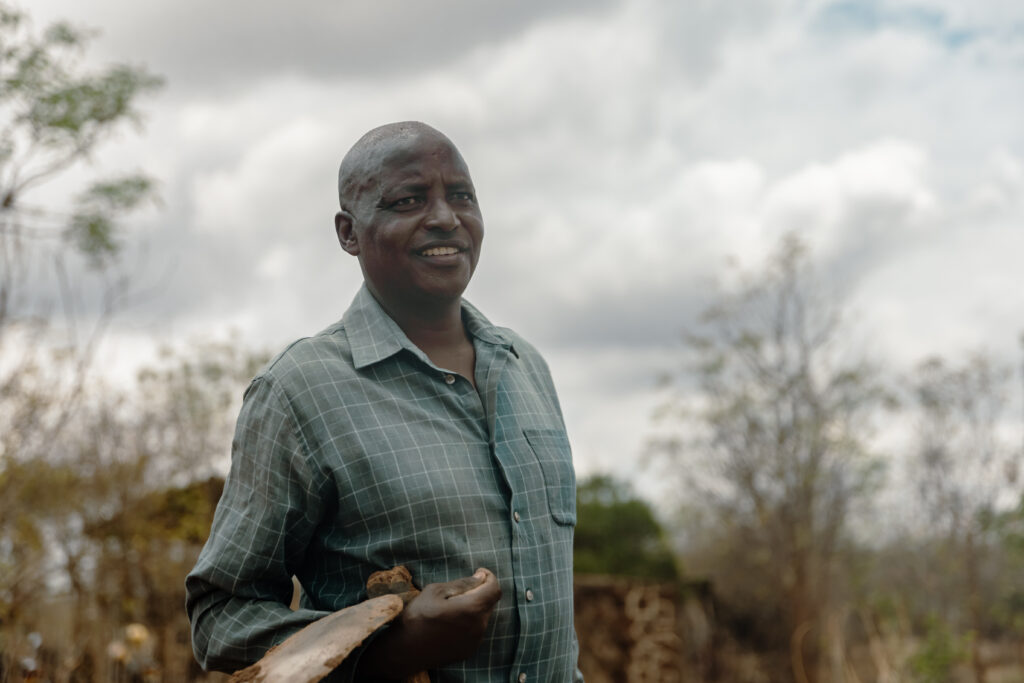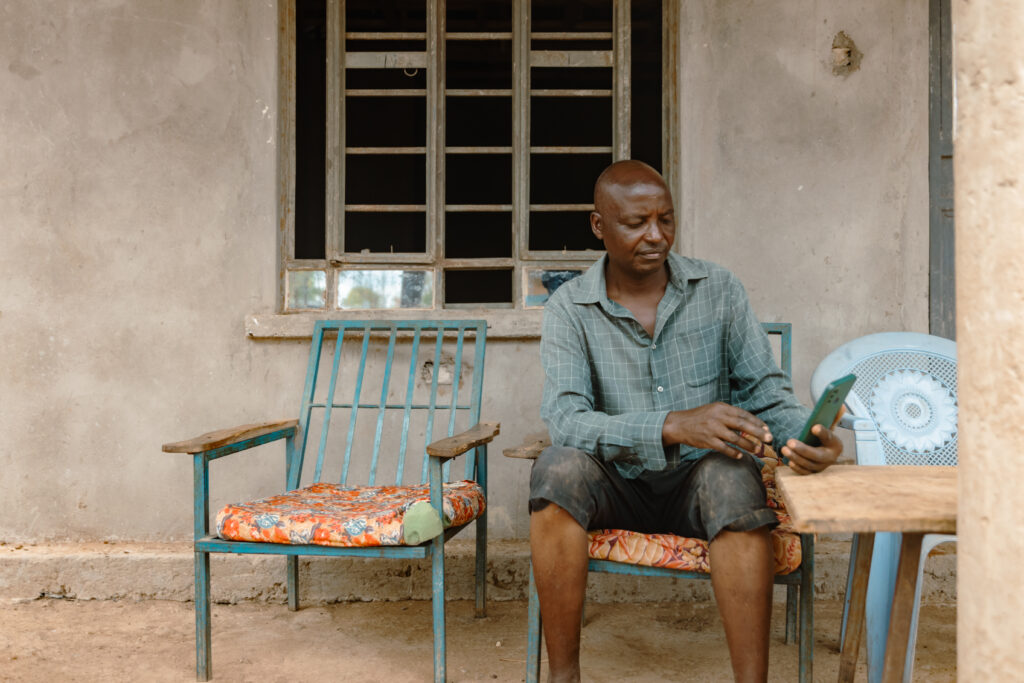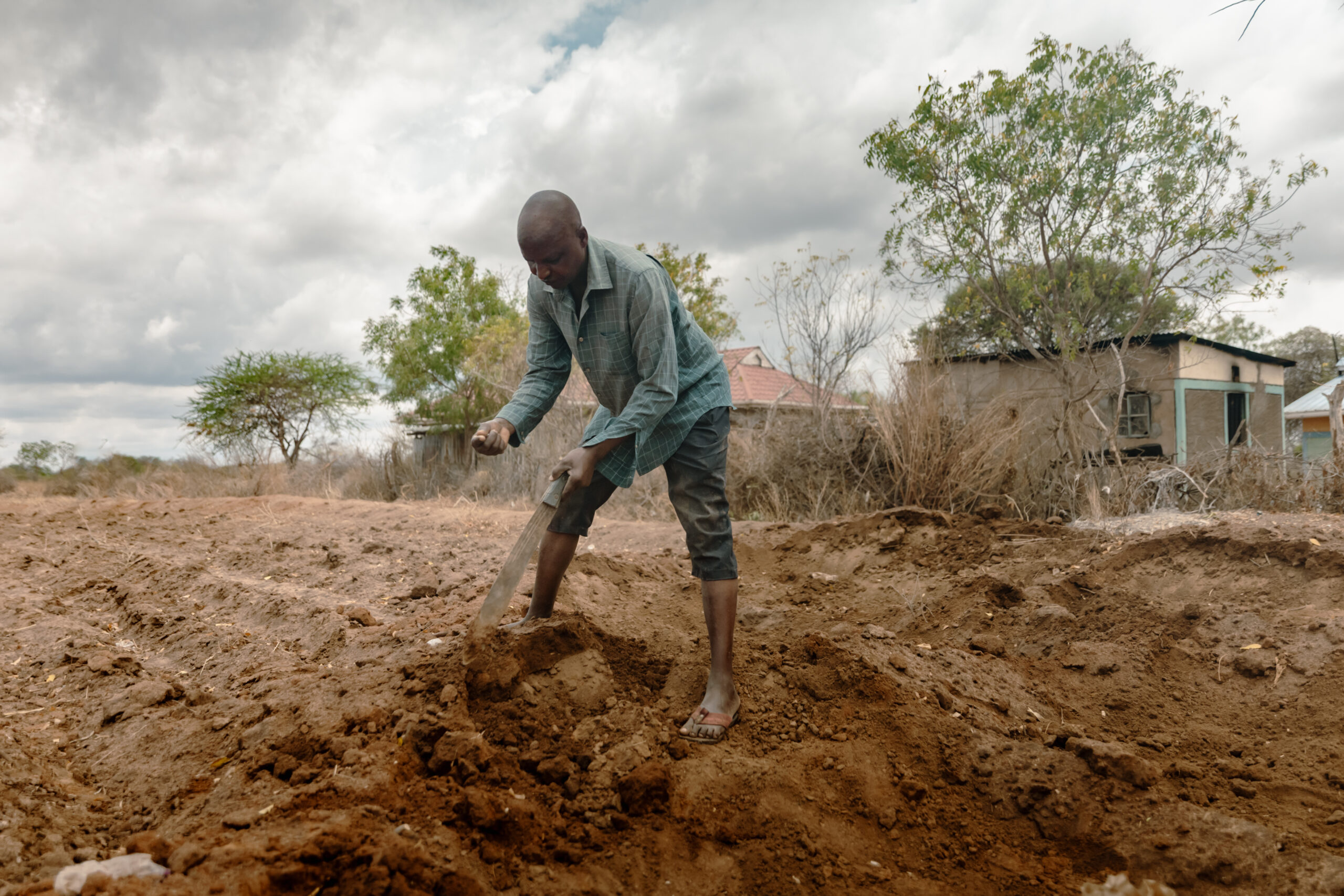A Changing Climate
At COP30 in Belém, Brazil, TomorrowNow’s message is clear: weather resilience is not a distant goal — it is already happening.
While world leaders debated adaptation targets, finance, and the next round of national climate commitments, TomorrowNow’s presence at COP30 focused on something more immediate — proof in action. On the ground in Africa, farmers like Michael Kisangau in Kibwezi, Kenya, is already translating climate science into resilience.
This is Michael’s story — and it reflects the reality behind TomorrowNow’s mission to deliver #WeatherThatWorks, turning AI-driven agro-met intelligence into practical decisions that protect lives, livelihoods, and national economies.
Kenya’s 2023 State of the Climate Report painted a sobering picture of a country under climate stress. The year was marked by above-normal temperatures across most regions, accelerating sea level rise along the coast, and severe rainfall variability. Some areas suffered prolonged droughts; others endured devastating floods, particularly in the Tana and Lake Victoria basins, where families were displaced, crops were destroyed, and infrastructure was damaged.
What the Data is Showing
These extremes carry heavy economic and social costs. As the World Meteorological Organization (WMO) noted, Kenya’s experience illustrates how climate change compounds risks — from food insecurity to energy shortages — demanding urgent, system-wide adaptation. (Source: WMO, Kenya State of the Climate Report 2023) At the same time, recent analysis by the Center for Strategic and International Studies (CSIS) underscores the macroeconomic implications. Between 2010 and 2020, climate-related events cost Kenya 3–5% of GDP annually, while floods and droughts created fiscal liabilities equivalent to up to 2.8% of GDP each year. These shocks erode the government’s ability to fund adaptation, strain the poorest households, and deepen trade vulnerabilities.
During the first quarter of 2023, for example, Kenya’s food import bill surged by 58%, driven by prolonged drought and high global wheat and edible oil prices. Damage to infrastructure from extreme weather further inflated costs across trade, transportation, and energy. Without accelerated adaptation and investment in resilience, CSIS warns, Kenya’s macroeconomic stability, food security, and poverty reduction goals remain at risk. (Source: CSIS, “Kenya’s Green Leadership: Shaping Africa’s Climate Future”)
These figures are not just numbers—they describe the world in which farmers like Michael are trying to plant, harvest, and survive.
“Many years ago, there was a lot of rain in this area. There was a lot of food. But these days, the weather is not good because of little and short rainfall.” His voice carries the weight of a national challenge — and the hope of a local solution.
“Many years ago, there was a lot of rain in this area. There was a lot of food. But these days, the weather is not good because of little and short rainfall. The messages I received said that there would be little rainfall and that I should prepare my farm. I began to do so. I added fertilizer and dug holes to get a harvest. These messages have been very helpful.”
Michael Kisangau, Kenya

Turning Forecasts into Action
For Michael, that solution begins with a message. Through TomorrowNow’s agro-met intelligence — localized, AI-powered weather insights delivered via SMS — he receives practical, timely guidance: when to plant, when to wait, and how to protect his crops.
TomorrowNow’s system translates global climate science into farmer-ready information through partnerships with KALRO, One Acre Fund, and NIMET. Each message is grounded in validated models, local observation, and field feedback — ensuring that the advice is accurate, actionable, and trusted.
When the rains grew shorter, Michael took matters into his own hands. “I have dug a dam so that when it rains, I pump water to the farm so that I can get a harvest. That is because of the short rain.”
At COP30, TomorrowNow CEO Wanjeri Mbugua called this “the bridge between data and dignity” — where technology meets lived experience, and innovation becomes empowerment. For TomorrowNow, the goal is not just to inform farmers, but to enable them to act — to adapt before disaster strikes. A year after joining the program, Michael’s results are clear: “Since I started receiving the messages, I have seen a lot of changes. When I plant, I harvest. It has been very helpful this past year.”
Across Kenya, TomorrowNow now reaches 5.2 million farmers with measurable gains. A recent report showed 12% higher yields and greater crop stability. At COP30, our CEO, Wanjeri Mbugua, and Brian Miranda, Head of Product, showcased this data to demonstrate how validated, system-embedded innovations can strengthen resilience at scale.

From One Farmer to Many
Michael’s story does not end with his own harvest. “I explained these messages to the people you saw here earlier, and they have followed the advice. Farmers can see the harvest that I had this past year. They have already dug holes so that they can also move forward.”
That same collaborative spirit animated TomorrowNow’s side event with iSDA, where two Gates-supported innovators showed “two sides of one solution” — AI for weather and AI for soil. Together, they demonstrated how combining agro-meteorological and soil intelligence can amplify farmer productivity and build resilience across Africa’s agricultural systems. Michael’s hope reaches beyond the next harvest. He shares, “I’d like to continue farming so that when I am older, I will enjoy the fruits of my labor. I want to create a future for my grandchildren to continue.”
That vision — of continuity, dignity, and self-reliance — reflects TomorrowNow’s broader mission. Our work in Belém was not about pilots or prototypes. It was about embedding science into public systems, strengthening institutional capacity, and ensuring farmers have access to the climate intelligence that sustains lives and economies alike.
As negotiators in Belém debated finance, adaptation, and ambition, TomorrowNow’s results stood as tangible proof that climate resilience can scale — that Africa’s innovators are not waiting, but leading. Because resilience is not built in negotiation rooms alone, it is built in the fields, by farmers like Michael — one forecast, one harvest, one future at a time.

